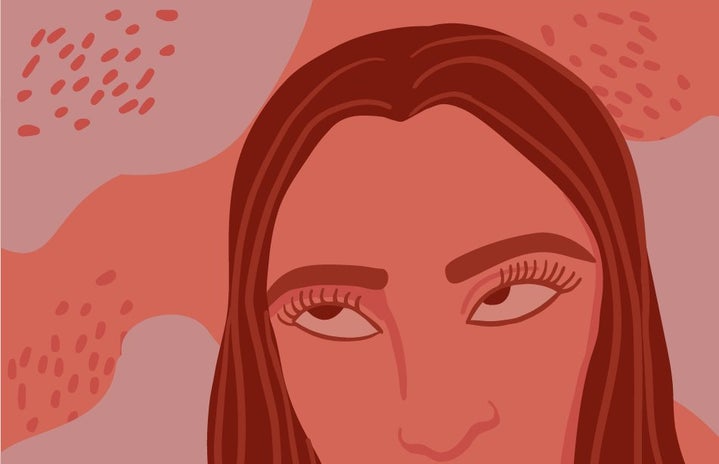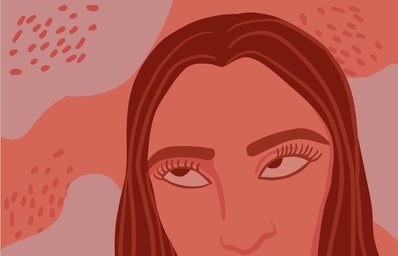“You aren’t like other girls, you know? You aren’t the typical girly type.”
I hear this type of comment or some form of variation often, and it’s usually said with good intentions; as a compliment and invites me, a woman, to take part in the joke and poke fun at the hobbies that feminine women enjoy.
Unfortunately, it is a backhanded comment. It perpetuates a certain stereotype as the subtext is that you are not like other “girls,” because you are one of the “guys.” It seems that they cannot compliment me without taking away my female identity and feminine qualities.
However, what I find more concerning is that “Not Like Other Girls” (NLOG) sentiment is also perpetuated by women. Many of us go through a phase where we feel as though our personalities and interest do not align with “Other Girls,” hence, we have the need to demean others in order to feel better about ourselves.
What does “Not Like Other Girls” mean?
Those who proudly claimed to be NLOG argue that they don’t fit within these stereotypes and don’t want to fit into the ideas of a stereotypical girly-girl. That may be a normal sentiment. Yet it is a little more insidious than that. These “Not Like Others” wear their “alternative” thinking and preferences as though it is a mark of honour. They have strong pride and feel that they are different to the point that they are better than these “Other Girls.”
The typical image of a “Not Like Other Girls” would be decked out in a graphic t-shirt, with sneakers, watching Netflix under a blanket fort. These girls are the misfits who do not conform to the stereotypical “girly-girl,” and therefore become unique.
We might feel like an outcast too if we cannot fit in with the “Other Girls” that do not have similar interests and hobbies. Thus, we comfort ourselves by saying “It’s the Other Girls that are the problem.” By thinking this, we might not notice that we are degrading the “Other Girls” for their hobbies, interests and passions. Moreover, it describes a stereotypical picture of “girls” as a monolith so that we can describe ourselves as intellectually and morally superior.
Who are the “Other Girls?”
On the other hand, the “Other Girls” are depicted with feminine qualities such as appreciating the romance genre or liking the colour pink. It becomes a demeaning insult to all “Girls.” This implies that the “Other Girls” were attempting to pander to men. The stereotypical “Other Girl” looks like an ultra-feminine girl who wears “too much” makeup and prances about in heels.
Society has conditioned us to criticise these “girly” hobbies as we tend to look down on hyper-feminine qualities. Recall the teen romance novels of Twilight? Many girls and boys hated these books, so much so that it was popular to hate the books rather than admit you liked them. We heavily stigmatised and frowned upon any hobbies that teenage girls loved.
It is then unsurprising that girls absorb these negative sentiment and thought processes. Just like Taylor Swift’s song “You Belong With Me” encapsulates this idea the best in her song that goes “she wears short skirts, I wear T-shirts.” We shame the “Other Girls” for liking stereotypical “girly” hobbies. We view these “girly” hobbies as shallow and unworthy, thus, label them as “Other Girls.”
Why is it problematic?
We put women and girls in boxes and label them to create a binary system of what an ideal woman or girl is, and most importantly what she should not be. It’s a form of internalised misogyny as it’s perpetuated by women to demean other women for what they like. Women cannot simply enjoy things without an ulterior motive as we become labelled in a certain way. Society has labelled girls into rigid categories.
For example, if you like Starbucks and pop music, you are “basic.” If you like indie bands and drawing, you are “quirky.” If you like sports and beer, you are the “cool girl.” These are the kind of girls that are effortlessly hot and easy-going. A chick who likes to hang with the guys, but is super hot, without too much makeup. It becomes a list of contradictions that is impossible to achieve as it elevates stereotypical male qualities over female ones. There is no winning with this. This forces girls into stereotypes and a binary idea that you are either the “Other Girls” or “Not Like Other Girls.”
It’s a zero-sum game. Not Like Other Girls presents a false dichotomy. The idea that you are either a tomboy or a girly-girl is an incorrect assumption. These are not mutually exclusive categories and we should not put our interests, hobbies and image into boxes. This stereotypical ideal type is a male fantasy as it presents a myth perpetuated by men pretending and imposing their wants.
I like things for my own enjoyment and not to attract men. It is unfortunate that the NLOG persona bases girls’ individuality has to come at the cost of generalising all girls. However, it does not have to be like that. We all go through this mentality in some form or another. We should realise that there is space for everyone to be themselves. By focusing on your individualism, you miss out on the potential sisterhood and connections that you can make with the “Other Girls.” We have to remind ourselves to be kinder and less judgmental because we don’t have to demean others to make ourselves feel better about our interests.


